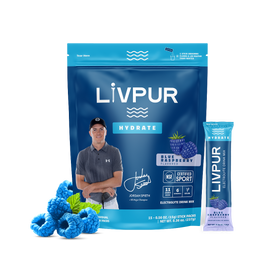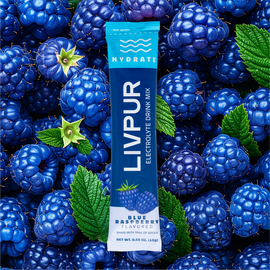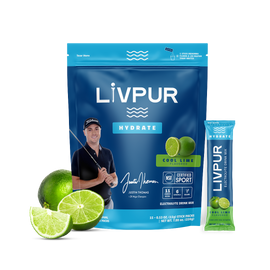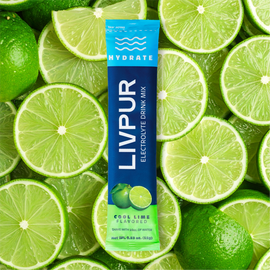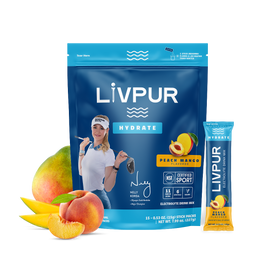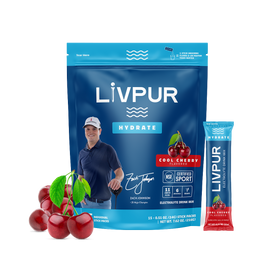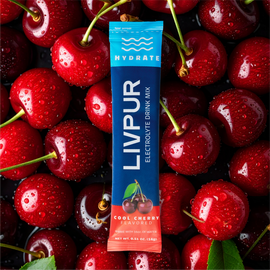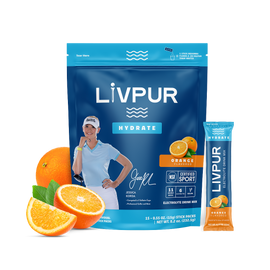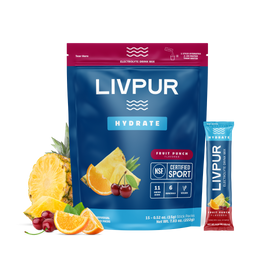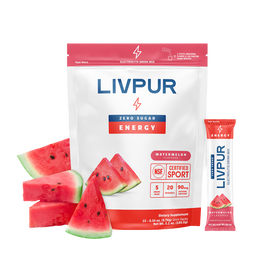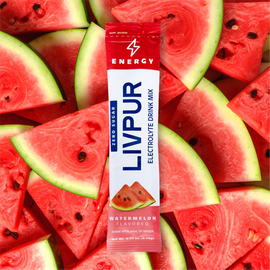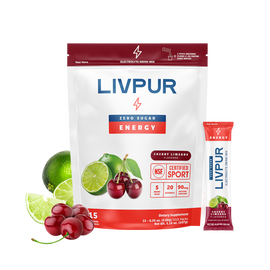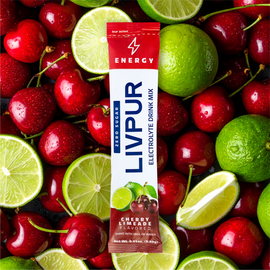October 01, 2025 • By Katie Switow • Blog
Best Daily Habits For Immunity Support

Your immune system is working for you, whether you know it or not. It sends signals to your tissues and guards your cells against cold and flu viruses. Your immune system naturally dictates how you feel (and therefore, how quickly you recover!) And the day in, day out habits we all have are the silent training method for your immune system. Small choices influence how your body fights infection, and as we'll explore, it takes more than eating healthy foods to keep your immune system healthy through flu season. Ready to learn some good habits for immune support?
How Your Immune System Functions Day To Day
Your immune system is a multifaceted defense present throughout your entire body. Bone marrow is responsible for creating many of the blood cells that become immune cells. White blood cells roam throughout your body and tissues, read signs, and decide what to do next. Some are speedy and swallow up intruders. Others coordinate the immune response and call in backup. Memory cells jot down what happened so your immune system can fight back quicker next time.
Your daily nutrition, your sleep schedule, level of physical exercise, and stress all affect your immune system. Having a healthy immune system is not the same as being totally safe from infectious diseases. Instead, a healthy immune response should be adequate for the flu season and not overactive, staying prepared for the next battle. But how do you prepare your immune system?
Daily Habits For Immunity Support
Habits create your default. You can't prevent all the cold and flu season exposures, but you can determine the terrain your immune system gets to play on every day. Start with the basics and do them until they feel automatic in your daily life.
Adequate Sleep
Sleep is the time when your body (and your immune system) quietly repairs itself. Adults typically need seven to nine hours, but don't adjust your sleep too quickly! Inadequate sleep or irregular patterns of sleep can change the rhythm of your natural hormones, which lowers the efficiency of white blood cells. This is also one of the fastest ways of feeling drained, which makes you stop exercising and reach for quick sugar instead...
Sleep can spiral quickly! We recommend creating a calming signal for bedtime (like dimming the lights) and having a cooler bedroom. With better sleep, your immune system is better rested and your body's ability to fight infection is much improved.
Exercise Regularly
Exercise every day keeps the circulation going so that blood cells reach where they are needed. Moderate exercise has been linked in sports medicine studies to improved immune function and lower rates of all types of illnesses. Do most weekdays and include muscle-strengthening activity a couple of times a week. It doesn't have to be heroic. A brisk walk that raises your heart rate is included. Hard training without rest weakens your immune system, so pay attention to how you're feeling and balance effort with rest and nutritious food.
Healthy Eating
Nutritious food supplies fuel for the cells that protect you. One meal does not make or break a healthy immune system; rather, it is built meal after meal.
When it's tough to get a well-rounded diet some crazy weeks, we like to make one anchor meal a day that includes protein, brightly colored vegetables, and slow carbs from whole grains. Your immune system likes what feels familiar, and this is one way we still get it in!
Start with diversity. Colorful fruits and vegetables bring vitamins that boost your immune system over the long term. Vitamin C in citrus, berries, and peppers enhances specific white blood cells to do their job. Vitamin D is fortified in dairy-based foods, fatty fish, and prudent supplementation during the winter helps shape the immune response. Zinc and selenium are found in lean meats, legumes, nuts, and seeds. Whole grains provide sustained energy and fiber that nourishes a healthy gut. Your gut is actually in constant contact with immune cells and controls the way your body responds to what it encounters every day.
Proteins are important because they provide the components for blood cells. Healthy fats in olive oil, avocado, and nuts reduce inflammation when they replace saturated fats. If you're building a plate, keep it simple. Protein to fix. Plants for vitamins and fiber. Carbs for long-lasting energy. Water or an electrolyte solution to keep fluid balance on track. Eating these healthy foods in these patterns is how you build your immune system without chasing trends.
Hydration As Daily Maintenance
Water helps your blood carry oxygen to your tissues, among many other things we've written about before. Hydration also helps mucus layers in the mouth and nostrils that trap harmful germs before they make it further in. If you exercise hard or sweat a lot, electrolytes regulate fluids so immune cells and other blood cells work as they should. Water is a good place to begin. Add electrolytes when heat, longer workouts, or salty foods leave you feeling dehydrated. It is an easy way to build immune strength during the periods of the year when dehydration creeps in on your immune cells.
Healthy Weight And Metabolic Health
Body composition also influences how your immune cells communicate. A body mass index that is high tends to accompany low-grade inflammation, and that background hum can make your immune system weaker over time. Gentle, consistent exercise with a beat of healthy eating can move weight and waistlines in a positive direction without the radical treatments.
Everyone's goal should be to maintain a (relatively) unchanging, healthy weight that you are able to maintain. That equilibrium keeps your immune system strong enough to react cleanly and disconnect when the work is done.
Stress Management You Will Actually Do
Stress is not just a feeling. It's a chemical state that changes hormones and tells your immune system how desperate the world looks. A fleeting stress surge can be beneficial if you're using the energy for something physically productive. But chronic stress makes your immune responses slow down because your body is always on overdrive.
We've written on this topic before, but our advice is to pick something you will actually do to help relieve stress. Ten easy breaths. A walk outside after lunch. Journal writing before bedtime. Short, regular practices lower the decibel level so immune cells can focus.
Sunlight, Vitamin D, And Time Outside
A few minutes of light during the day resets your internal clock and helps you sleep later. Sunlight also helps maintain vitamin D levels for some, which impacts the immune system. Gaps can be filled with dietary sources and supplements. Levels can be checked by your clinician if unsure. The pattern of light during the day and dark at night is as significant as the amount.
Flu Season, Cold Viruses, And Practical Prep
The flu virus and its extensive list of cold viruses travel more quickly when days shorten and humans are inside more. This is why habit is important. Rest, activity, and healthy behavior maintain your baseline. A flu shot provides your immune system with specific protection against the flu virus. Wash your hands, don't touch your face, and get into the habit of opening a window for fresh air when you have crowds of people around. Keep healthy food handy so that you don't fall into the snacking trap that leaves you feeling drowsy an hour later. These small habits boost your body's ability to muster up a clean response and avoid having to suffer from full-blown illness.
Bringing It All Together

There is no shortcut that can rev up your immune system on tap. The pattern is the key. Let’s recap it quickly!
Sleep in order to recuperate. Exercise on a regular basis so your blood cells stay healthy. Select a balanced meal that emphasizes whole grains, lean proteins, dairy foods if they work for you, and loads of fruits and vegetables for vitamins such as vitamin C and vitamin D. Drink enough water so your tissues remain in readiness. Limit alcohol and cut out tobacco products so that they do not weaken your immune system. These are the healthy habits that naturally stimulate your immune system and keep you healthy all through the year.
If you want something simple to start with, pick the two habits you can keep up this week and start from there! If one of those habits is staying hydrated, LIVPUR Hydrate makes it simple for you to keep fluids and electrolytes balanced as you get on with the work that matters most to you.
